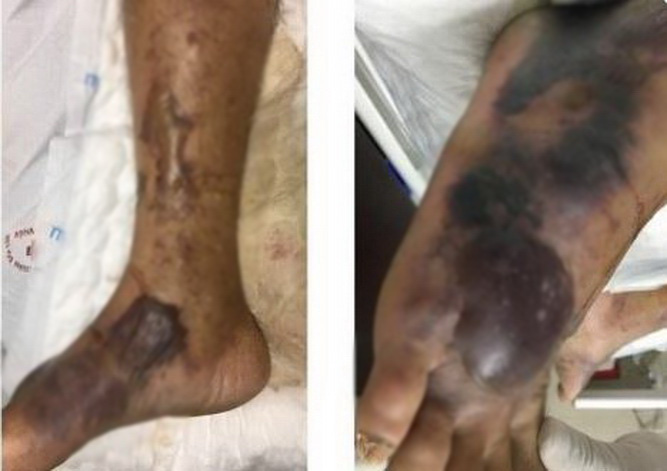Several people are in a critical condition from potentially deadly infections caused by Vibrio vulnificus, better known as flesh-eating bacteria, after consuming raw and undercooked shellfish, particularly oysters.
Hanoi-based 108 Military Central Hospital said its doctors from the Institute of Clinical Infectious Diseases had treated some patients infected with the bacterial species, which caused septic shock and multiple-organ failure.
Their conditions became severe quickly, resulting in a high death rate, according to the infirmary.
The most recent case was a 59-year-old man, Nguyen Van A., from the northern city of Hai Phong.
He was admitted to the hospital suffering from abdominal pain, vomiting, diarrhea, and a fever of 39-40 degrees Celsius.
The man was reported to have eaten undercooked seafood prior to exhibiting such symptoms.
After several hours of hospitalization, he fell into septic shock, lapsed into a deep coma, and suffered multiple-organ failure and a severe bleeding disorder.
Inflamed or swollen areas around his arms and legs were also spreading rapidly.
Doctors later found the flesh-eating bacteria in his blood samples.
The patient was promptly given strong antibiotics and put on a ventilator while undergoing frequent dialysis and other resuscitation procedures.
As his condition remained severe and life-threatening after four days of intensive treatment, his family asked for doctors’ permission to take him home.
Flesh-eating bacteria
Vibrio vulnificus thrives in salt and brackish water around estuaries or lives on shellfish, such as shrimp and oysters, according to the Hanoi hospital.
The species of bacteria can cause necrotizing fasciitis – a soft tissue infection that progresses to the infected people’s muscles and organs resulting in rapid destruction of tissues.
The blood infection triggered by the bacteria has a mortality rate of 50 to 90 percent, and patients usually die within two days despite intensive treatment.
Dr. Vu Viet Sang from the Institute of Clinical Infectious Diseases warned people against eating raw or undercooked seafood, particularly oysters, due to a high risk of infection.
He cited a survey among over 180 patients catching the bacteria as saying that roughly 93 percent of them had eaten raw oysters in the previous two days. The incubation period ranges from three hours to six days.
There have also been cases of infections through tiny wounds, such as pricks from shrimp and oyster shells while people swim in the ocean, according to the physician.
Anyone can get a Vibrio wound infection, but alcoholics, people with chronic liver disease, blood disorders, diabetes, kidney failure, and lymphoma are more susceptible to the ailment, he said.
Men, especially older ones, are more vulnerable than women.
Like us on Facebook or follow us on Twitter to get the latest news about Vietnam!




















































